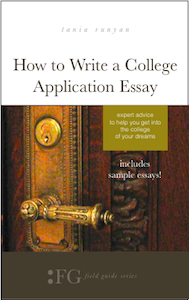
10 of the Very Best Science Poems!
There are those who, in expression of their various poetry-oriented anxieties, would say that poetry feels like rocket science. And sure, if you’ve been reading a lot of Hallmark cards and then pick up a sestina, it might feel like you’ve just been called to the blackboard and handed a piece of chalk in that physics class you always slept through.
But poetry is not rocket science, except to the extent to which poetry and science work together. Much of poetry is about science, whether it is overt, as in Vachel Lindsay’s “The Horrid Voice of Science” in which he expresses a morbid desire for those who think in such terms to “soon lie / Underground” or Whitman’s “When I Heard the Learn’d Astronomer, ” or the poems of nature like Christina Rossetti’s “Who Has Seen the Wind?” which speaks of scientific phenomena with more nuance. It could be argued, I suppose, that without science there might be no poetry. One could also wonder if the opposite would be true.
To help you test the hypothesis, here are 10 great science poems.
1.
Sonnet—To Science
Science! true daughter of Old Time thou art!
Who alterest all things with thy peering eyes.
Why preyest thou thus upon the poet’s heart,
Vulture, whose wings are dull realities?
How should he love thee? or how deem thee wise,
Who wouldst not leave him in his wandering
To seek for treasure in the jewelled skies,
Albeit he soared with an undaunted wing?
Hast thou not dragged Diana from her car,
And driven the Hamadryad from the wood
To seek a shelter in some happier star?
Hast thou not torn the Naiad from her flood,
The Elfin from the green grass, and from me
The summer dream beneath the tamarind tree?
2.
Winter Trees
All the complicated details
of the attiring and
the disattiring are completed!
A liquid moon
moves gently among
the long branches.
Thus having prepared their buds
against a sure winter
the wise trees
stand sleeping in the cold.
3.
Who Has Seen the Wind?
Who has seen the wind?
Neither I nor you:
But when the leaves hang trembling,
The wind is passing through.
Who has seen the wind?
Neither you nor I:
But when the trees bow down their heads,
The wind is passing by.
4.
The trick is slick code to manage
all the if, for, and while statements
in a optimized number of lines.
Pass a list, fix the syntax, import all the variables.
Comment your lines and indent where necessary,
leaving line breaks and whitespace
for readability.
Click to get FREE 5-Prompt Mini-Series
5.
To the Chief Musician upon Nabla: A Tyndallic Ode
I.
I come from fields of fractured ice,
Whose wounds are cured by squeezing,
Melting they cool, but in a trice,
Get warm again by freezing.
Here, in the frosty air, the sprays
With fern-like hoar-frost bristle,
There, liquid stars their watery rays
Shoot through the solid crystal.
II.
I come from empyrean fires—
From microscopic spaces,
Where molecules with fierce desires,
Shiver in hot embraces.
The atoms clash, the spectra flash,
Projected on the screen,
The double D, magnesian b,
And Thallium’s living green.
III.
We place our eye where these dark rays
Unite in this dark focus,
Right on the source of power we gaze,
Without a screen to cloak us.
Then, where the eye was placed at first,
We place a disc of platinum,
It glows, it puckers! will it burst?
How ever shall we flatten him!
IV.
This crystal tube the electric ray
Shows optically clean,
No dust or haze within, but stay!
All has not yet been seen.
What gleams are these of heavenly blue?
What air-drawn form appearing,
What mystic fish, that, ghostlike, through
The empty space is steering?
V.
I light this sympathetic flame,
My faintest wish that answers,
I sing, it sweetly sings the same,
It dances with the dancers.
I shout, I whistle, clap my hands,
And stamp upon the platform,
The flame responds to my commands,
In this form and in that form.
VI.
What means that thrilling, drilling scream,
Protect me! ’tis the siren:
Her heart is fire, her breath is steam,
Her larynx is of iron.
Sun! dart thy beams! in tepid streams,
Rise, viewless exhalations!
And lap me round, that no rude sound
May mar my meditations.
VII.
Here let me pause.—These transient facts,
These fugitive impressions,
Must be transformed by mental acts,
To permanent possessions.
Then summon up your grasp of mind,
Your fancy scientific,
Till sights and sounds with thought combine
Become of truth prolific.
VIII.
Go to! prepare your mental bricks,
Fetch them from every quarter,
Firm on the sand your basement fix
With best sensation mortar.
The top shall rise to heaven on high—
Or such an elevation,
That the swift whirl with which we fly
Shall conquer gravitation.
— James Clerk Maxwell
6.
The Horrid Voice of Science
“There’s machinery in the
butterfly;
There’s a mainspring to the bee;
There’s hydraulics to a daisy,
And contraptions to a tree.
“If we could see the birdie
That makes the chirping sound
With x-ray, scientific eyes,
We could see the wheels go round.”
And I hope all men
Who think like this
Will soon lie
Underground.
When I Heard the Learn’d Astronomer
When I heard the learn’d astronomer,
When the proofs, the figures, were ranged in columns before me,
When I was shown the charts and diagrams, to add, divide,
and measure them,
When I sitting heard the astronomer where he lectured with
much applause in the lecture-room,
How soon unaccountable I became tired and sick,
Till rising and gliding out I wander’d off by myself,
In the mystical moist night-air, and from time to time,
Look’d up in perfect silence at the stars.
8.
Chandrasekhar Limit
Perhaps I shine brightest now,
but my energy has changed;
what I know is difficult to know
in simple space and time;
passion is a system dying,
if not making new.
Precious is a luxury,
a jewel with maintenance.
I am a white dwarf, long in the truth
of life and death, weighted with mission
that follows me like a shadow,
a penumbra I must now leave behind.
This is the way of creation, nothing
begets nothing. Darkness moves me
into the light.
Click to get FREE 5-Prompt Mini-Series
9.
Love Is a Lot Like Physics
Love is a lot
like physics:
it takes study
to understand
how masses —
yours, his —
attract; how his body
heat conducts and
your heart rate
accelerates before
either has had time
to evaluate impact.
You think you
understand velocity,
assume his speed
at takeoff matches
yours. You fail to
account for force
or Newton’s third
law of motion.
The outcome of that
one wrong electrical charge
leaves all the circuits
broken. You begin to
oscillate, fall from orbit,
finally calculate the variables
of just so much hot air.
— Maureen Doallas, author of Neruda’s Memoirs
10.
Love is Chaos
(It’s relative, generally speaking)
The angle of incidence – the collision
The angle of reflection— the realization
Burned by the egregious refraction
Of searching eyes
What is the (anti) matter
Stretched between magnetic fields
Of Reason and Desire
How will the equation balance—
One side must invariably be solved
(You)—
A centripetal force inveigling —
Explain entropic delusions
and test assumptions of reality.
Browse more Science Poems
Browse more Poetry at Work
Photo by William Franklin, Creative Commons license via Flickr. Poems used with permission of the author or publisher, were submitted as part of our community poetry prompts, or are in the public domain.
___________

“How to Write a College Application Essay is a valuable resource that I enthusiastically recommend to my students and their families.” —Lisa Scanio, High School Counselor, Adlai Stevenson High School
- Earth Song Poem Featured on The Slowdown!—Birds in Home Depot - February 7, 2023
- The Rapping in the Attic—Happy Holidays Fun Video! - December 21, 2022
- Video: Earth Song: A Nature Poems Experience—Enchanting! - December 6, 2022

Maureen says
Thank you for including me, LW!
Monica Sharman says
It already made my day to see the words “science” and “poems” next to each other … and then I saw #4. Thank you!
Monica Sharman says
… and I just now noticed that one of the poems is by Maxwell, of Maxwell’s Equations fame! I had no idea he was a poet!
Rick Maxson says
Thank you LW for including my poem. I agree with Monica, it is wonderful to see science and poetry sharing the same space and time. They are both pathways to seeing.
Prasanta says
Thank you for including my poem here – I didn’t even realize it was here! I agree with both Monica and Rick about science and poetry, and I love how Rick put it: “wonderful to see science and poetry sharing the same space and time”.
Greta Faccio says
wow, i love the selection! the one about love and physics is my favourite! I also like poetry and have a blog about science and poetry, or better poetry and working in the lab as a scientist. the two things are a match made in heaven! poetryfromthelab.com